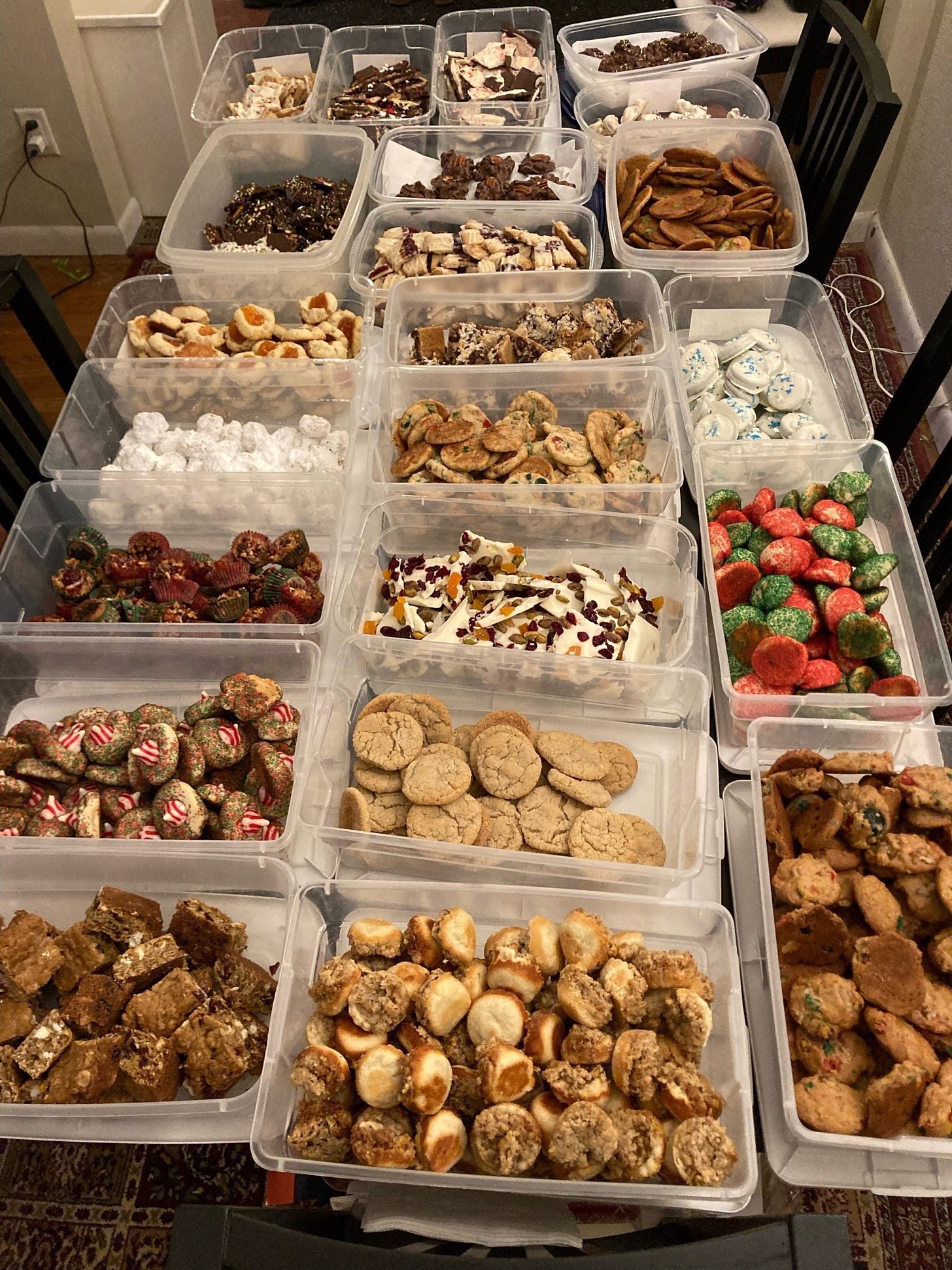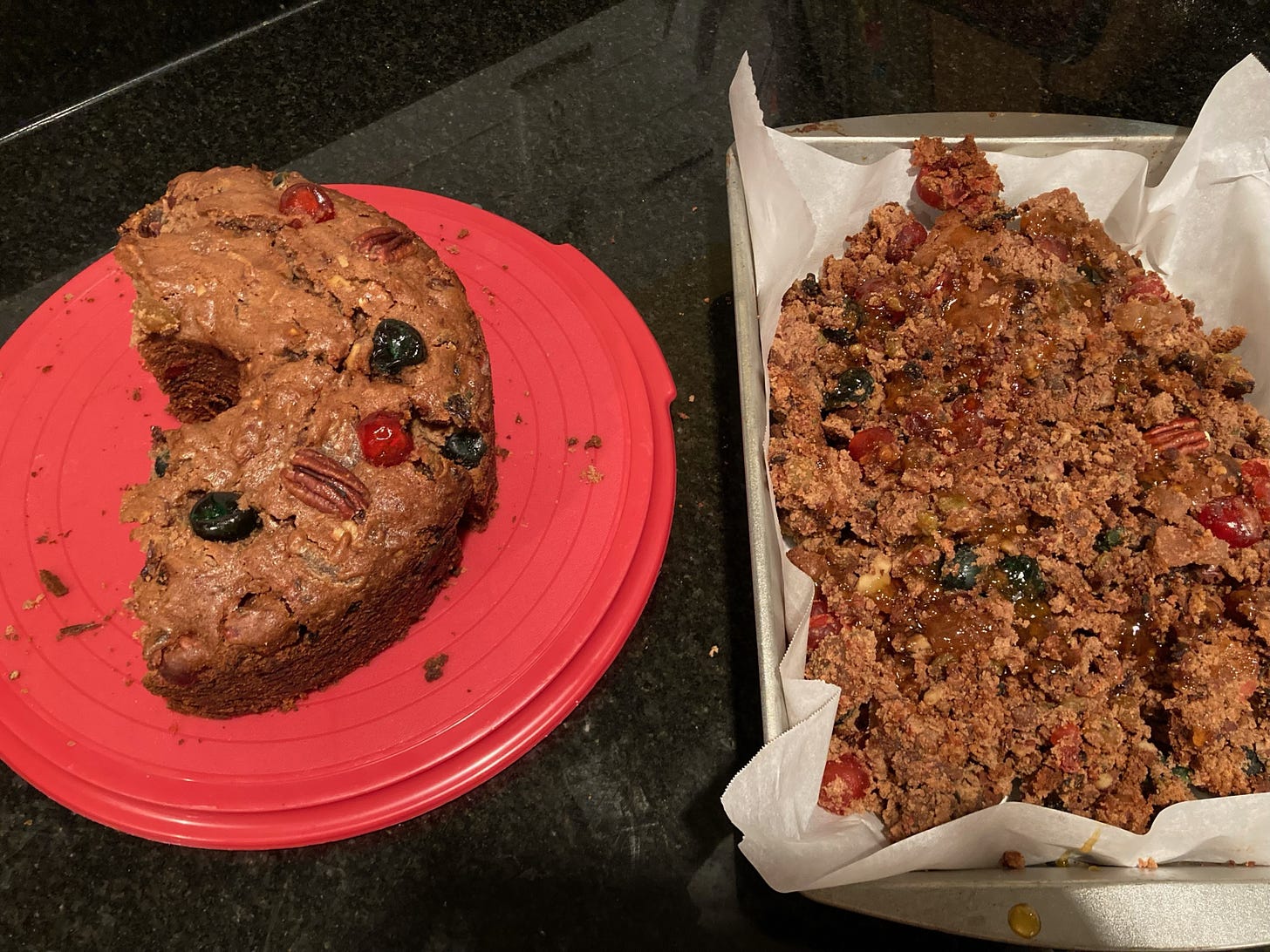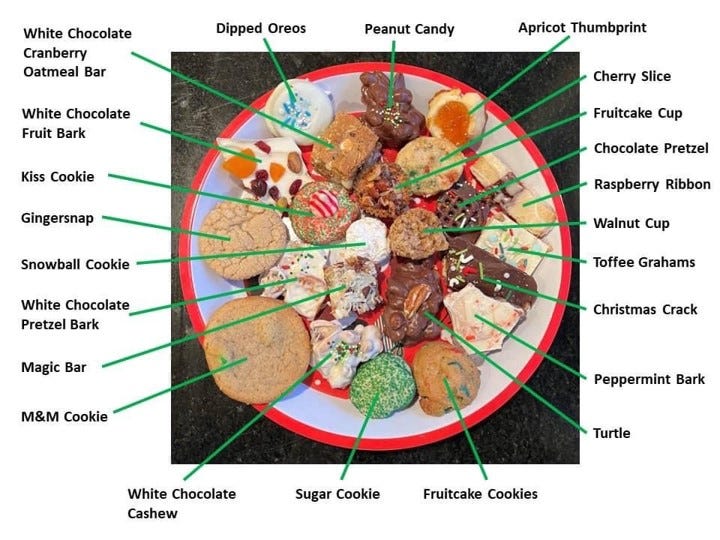Hello Friends in the Computer,
This is another one of those posts where I clear out my internal and digital pinboard of incomplete thoughts that are rattling around my head as well as other cool things I’ve found and share them in a patchwork quilt of a post.
(This is actually the type of post I meant to only do here and keep long form things on my blog but plans, laughing God, and all that.)
Legal Deserts
Way back in 2015-2016, I was privileged to spend a year doing a fellowship at a school in Cambridge. (That’s how fancy-ass people say they were at Harvard without mentioned the H word because...it’s gauche to brag.) After completing my census of state primary information, the next step was going to be to map what I would call Legal Deserts, because I had recently learned about the Food Desert concept.
I was going to base it on distance to publicly available law libraries, internet access, legal aid centers, attorneys, clinics, etc. And I got through about 3 states of trying to find courthouse libraries and realized that it was nigh on impossible for one chick and an excel spreadsheet to tackle, even if I did have technically 96 hours a week to work on it and unlimited coffee.
Enter the good folks as the National Center for State Courts and our new AI overlords. They have been creating Legal Desert Maps. The Indiana Map has more details on what types of data they included in constructing these maps.
I don’t know about you, but my wheels are turning on how to adapt this type of LLM work into other projects. I love me a good clearinghouse of information.
Some Collected and Connected Thoughts..
I guess the best way to tackle this is to link to a few things that caught my attention over the past few weeks that feel connected and it seems serendipitous that they kept coming across my screens.
This blog post from Mita Williams, which references both a Barbara Fister talk (which I think I’ve shared before) and the work of Stafford Beer and ends with the quote:
“libraries overemphasize authority from sources, and do not do enough to support bibliography, a format in which authority derives from people and their choices.
It also helps explain why I’ve come to understand why I have developed such a strong distrust of large language systems: I cannot abide that these systems are designed to completely dissolve the connection between a person and the words that they have written or said.”
A choice quote from the Fister piece (as quoted by Williams):
“I love the idea that research should be part of our lives, not something done only for a peculiar kind of school-based writing that erases the self and derives authority from other people – or, more commonly, not people but things: sources.” (Bolding by me)
The Williams post also led me to this post from Harold Jarche, in which he describes his work with Personal Knowledge Mastery. Excerpt:
“This got me thinking about personal knowledge mastery. It is an alternative to AI. The Seek > Sense > Share framework is based on connections not just with knowledge and information, but most importantly, people. As I wrote in 2022, we are in an information war — one that pits logic and emotion against each other. Two powerful weapons used against us by the social media algorithms are ‘Likes’ and ‘Shares’. To counter these influences, we each have a more powerful weapon — our own commentary. This is the power of blogs. A single blog, in a network of peers, can have much influence.
Writing a blog can be an important sensemaking tool and is core to my personal knowledge mastery discipline.”
And add in this LinkedIn Post from Jae Um about creativity and training new associates, particularly “What kind of work (i.e. what kind of practice, what kind of experience) helps people develop skill, expertise, judgment?:” which is connected to an Ira Glass quote:
"Nobody tells this to people who are beginners, I wish someone told me. All of us who do creative work, we get into it because we have good taste. But there is this gap. For the first couple years you make stuff, it’s just not that good. It’s trying to be good, it has potential, it has ambition to be good, but it’s not quite that good. But your taste, the thing that got you into the game, is still killer. And your taste is why your work disappoints you. A lot of people never get past this phase, a lot of people, they quit. Most people I know who do interesting, creative work went through years of this. We know our work doesn’t have this special thing that we want it to have. We all go through this. And if you are just starting out or you are still in this phase, you gotta know its normal and the most important thing you can do is do a lot of work, a huge volume of work... It is only by going through a volume of work that you will close that gap, and your work will be as good as your ambitions. And I took longer to figure out how to do this than anyone I’ve ever met. It’s gonna take awhile. It’s normal to take awhile. You’ve just gotta fight your way through that."
Obviously a lot of training and professional growth as an individual in the legal professions is borderline hazing and is grunt work for the sake of grunt work. But what happens when all that grunt work is replaced by an AI system? What low stakes/high volume work for new entrants can replace it so that they learn skills (technical, human, and legal), refine their judgement, and also get better at creation?
And don’t you dare say pro bono work. Poor people are not your test subject.
Somewhat related….
On ongoing issue in libraries, justice/legal systems, or other knowledge based institutions is the idea that they are neutral arbiters. Libraries are not neutral. Courts are not neutral. Government Agencies are not neutral. Cataloging and curation choices are based on human decisions that are informed by the human’s biases, traumas, personal understanding of the world, etc. The same with every sort of government institution that presents some gears that an actual human has to grind through to get justice, however you may define that.
Probably my most radical thought is that the system is not broken but rather the system is operating exactly as designed. Look who benefits and why and also who is harmed and why. Only then can you start dismantling the design.
AI based systems are already in place both cataloging and classifying knowledge as well as making decisions about legal issues. Even though we all know - WE ALL KNOW - that AI systems contain the same biases as the humans that developed them, we are still allowing a creation of a space between the systems decisions and the responsibility of the human creating it.
I dunno…I think the best way I’ve found to both learn about and understand things and the world - from professional issues, to cultural works, to my own biases, and lots more - has been to write it all down and read what have written, either in response to what I’ve said or their own original work, compare against my internal narrative and knowledge, and add to or adjust as necessary. (And also, maybe as important, learn to determine who is full of shit.) What are we losing when we lose these human to human knowledge transfers or even the practice of determining ones own thoughts? An AI system can surely provide technical review but where’s the review and feedback based on differing context or lived experience?
But Also Maybe There’s a Benefit to Some Space…
One idea that I didn’t know I had until it popped out of my mouth in this podcast is that for new legal professional training or delivery of legal services, there’s something nice about…not having to show another human your ignorance, especially one who is your boss or other person of influence. Or for those seeking legal help, how weird it is to be in the physical presence of a Big! Scary! Lawyer! when you’re not used to being around white collar workers of any stripe let alone a someone in a suit with a wall of West Reporters waiting menacingly behind them.
Back when dinosaurs roamed the earth and I still worked in digital services in a library, we talked a lot about our websites as “virtual branches.” I’m sure the discussion has continued and there’s a wealth of knowledge available to draw upon when designing “virtual legal clinics” using LLM tools. There’s a great opportunity there to lower not just physical and financial barriers to assistance but also psychological ones.
Mita Williams also has touched on this in another blog post.
This is also in here somewhere too
A few years ago I read something about Indigenous Knowledge systems and how to integrate them with existing Western based library and information systems. I wish I could find it and also find a concise explainer of these concepts to link here, but main components of them are that they are collective, holistic, adaptive, and sustainable.
So much of Western knowledge systems (in which I include legal systems and legal service delivery) are based on artificial scarcity and often offer problem-based solutions instead of systematic ones. And, as always, unless we make some huge changes in these underpinnings, AI is only going to amplify and accelerate the damages caused by these ways of thinking.
(Also, if being hunted down by Boston Dynamics robots isn’t keeping you up at night, maybe the Earth becoming uninhabitable wasteland faster because AI energy use accelerating climate change will!)
So, anyway, I was really excited to learn about the Indigenous AI working group and their Abundant AI Research Program. I will be very interested to follow their progress. The nice thing about paradigm shifts is that we have a chance to shift them towards the causes of justice, equality, and sustainability instead of repeating the same mistakes.
Bee Tee Dubs, fun fact I just learned: Ross Ihaka, the co-inventor of R, is Maori.
Finally, Potentially a Metaphor
This past weekend was my sister and my Cookie Baking Weekend. It’s a little out of control.

I mean, not as OUT OF CONTROL as my sister making an annotated picture to share on social media.
After everything was done, I used the left over dried fruit and nuts to make a fruit cake. I think I found a winner of a recipe this year. There was however…a slight issue with removing it from the pan.

Half of it looks really nice and all of it tastes good. You can see the vision and I almost got to it, but…the execution was slightly off. But like I said, it all tastes really good so that’s probably more important.
It actually reminds me of the best piece of public speaking advice I ever received…basically, you know how your talk was supposed to go and what points you wanted to hit, but the audience doesn’t. They just know what they hear in that moment. So don’t worry about it if your plans go awry or you forget a section that you wanted to hit. Just keep smiling and talking and everyone will go along with it.
Well I think that’s long enough for now. This is PROBABLY my last post of 2023, but of course who knows. If it is, see you next year!
Be well,
Sarah




